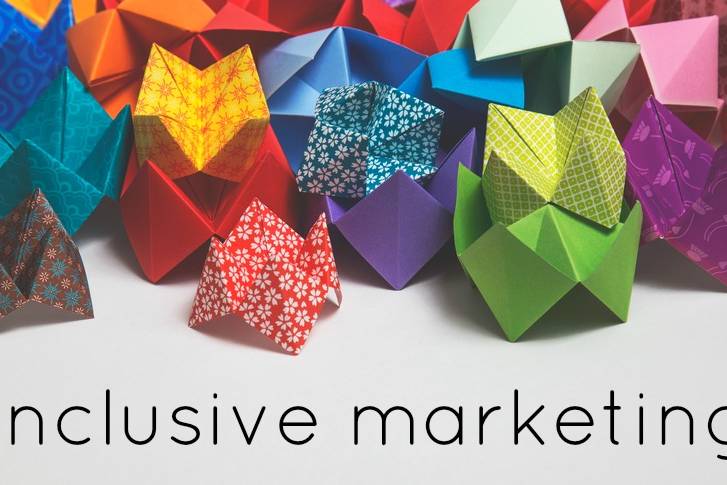Don Bulmer and I are thrilled to share the findings of our latest study, The Social Consumer, and we think this is the most exciting one yet! We researched the factors that inform, impact and shape trust, loyalty and preferences of the digitally connected consumer. We tested the belief that brands which can tap into the emotions about and awareness of their values (human/social) are most likely to inspire positive action and loyalty from consumers. This is our third research collaboration since 2009, as part of our fellowship with The Society for New Communication Research.
We were driven to do this study because we were noticing the massive changes happening in our world and work. Th super-connectedness of global communications is challenging how companies interact, engage and maintain relevance and trust with their key audiences and the public-at-large. Consumers are more discerning about the companies they choose to do business with and support. We are now in a “so what”, “show me” or “can I trust what you say” business, political and social economy.
The findings from The Social Consumer study reflect a number of surprising and validating insights, informed by surveys completed by 927 respondents mostly from the U.S. with about 10 percent from rest-of-world, with great distribution and balance across age and gender. The study explored:
- Expectations for brands by digitally engaged consumers
- Characteristics of the relationship factors between a consumer and a brand
- Whether corporate social responsibility (CSR) influences consumer behavior
- How strongly do perceptions of a brand’s “making a positive difference” shape consumer preferences to purchase or affiliate with the brand
- The rewards (e.g. product offers, discounts, CSR) that consumers favor most from brands
- The impact of rewards on a consumer’s digital behavior (e.g. purchase, endorsement, vote, rate, etc.)
Here is a summary of our key findings:
Gender vs. Generation Gap: There are greater differences in consumer decision-making behavior between genders than between generations. While we expected to see a strong difference between Millennial consumer behaviors vs. older generations, the findings overwhelmingly support gender as a stronger factor than generation. Women are two times more likely to turn to social channels to inform their decisions about purchases than men (31% vs. 15%). Moreover, women place more importance on the degree to which a company commits to operating with a social conscience, and are influenced most by: what the media reports about a company, online customer reviews and ratings, and a company’s advertisements. Twenty-five percent of women are more likely to make a purchase when they learn about an organization’s positive social impact actions compared to only 12% of men. And, women (regardless of age) are more likely than men to engage online as advocates or activists on behalf of or against a brand.
The Social Influence Factor: Social Media sharing plays a significant role in influencing buyer decisions. A seemingly small percentage of people who share online one or more times per month (24%) have great influence on a much larger majority of consumers who read online sites to inform decisions or opinions (67%). Consumer ratings/commentary and personal recommendations are most frequently cited as the top sources to inform decision making and purchases. Clearly, word of mouth — or keyboard and touch-screen — matters. In the absence of personal recommendations, buyers frequently go online to inform their decisions. The majority of respondents (71%) regularly read social media sites as part of their information gathering routine; 76% consider what their friends, family or other trusted information sources say about a company when they are forming an opinion about a company.
Loyalty is a Big Win: Once a company earns a consumer’s loyalty, the typical factors a consumer uses to make purchase decisions becomes less scrutinized because the customer trusts the company to serve them well. Quality and price (75% vs. 72%) rate as the most important factors when choosing to buy from a company followed by trust (50%), positive ratings online (43%) and personal recommendations by family and friends (42%). Once loyalty is established, consumers depend less on the input or opinions of others. In these situations, continued loyalty is more heavily weighted towards quality, customer service and price.
Consumer Advocacy is Hard Won: When taking action to share an opinion online, people are slightly more inclined to do so based on a negative experience. 70% of respondents report sharing a negative experience online (sometimes/frequently), while 68% state they have shared a positive experience online (sometimes/frequently). Respondents who advocate online on behalf of brands to which they are loyal tend to focus on clarifying inaccurate information about the company as an advocacy activity.
Consumer Good vs. Societal Good: There is a significant gap in consumer views and expectations for a company’s Corporate Social Responsibility (CSR) efforts and societal impact. Less than 10% of respondents indicated the CSR or societal impact of a company is of high importance in making a decision to purchase. Many respondents described societal good using “good for me” examples, such as low prices and discounts, rather than “greater good” outcomes for the planet, social causes and others. While this is a disappointing commentary on consumer behavior at large, it suggests there are opportunities for companies to educate around what societal good really means, especially if they connect this message to how their CSR programs help the world and the consumer.
When quality and price are largely equal in a purchase decision, nearly three in five people report a moderate to strong positive impact on likelihood to purchase when they discover information on the positive societal impact of a company. Slightly more people (61%) report a moderate to strong negative impact on likelihood to purchase when hearing news on the negative societal impact of a company. Product or service experience (positive or negative) is two times more likely to be shared than news of a company’s social impact (positive or negative). News of the negative societal impact of a company has greater impact on women (13% more than men).
Power of the Medium: Social media maintains a strong influence in the lives of consumers. Reading social media sites is the second most popular activity consumers engage in – just behind watching TV. It rates higher than listening to the radio or reading the newspaper. Consumers frequently use social channels to share their experiences with companies – both positive and negative – and this, in turn has a material impact on influencing buyer decision making.
The complete report can be found here. We encourage you to read, share and comment.
Warning: Attempt to read property "base" on array in /home3/trusten9/public_html/leadernetworks/wp-content/plugins/wp-user-profile-avatar/shortcodes/wp-user-profile-avatar-shortcodes.php on line 665
Warning: Attempt to read property "base" on array in /home3/trusten9/public_html/leadernetworks/wp-content/plugins/wp-user-profile-avatar/shortcodes/wp-user-profile-avatar-shortcodes.php on line 665
Warning: Attempt to read property "base" on array in /home3/trusten9/public_html/leadernetworks/wp-content/plugins/wp-user-profile-avatar/shortcodes/wp-user-profile-avatar-shortcodes.php on line 665
Warning: Attempt to read property "base" on array in /home3/trusten9/public_html/leadernetworks/wp-content/plugins/wp-user-profile-avatar/shortcodes/wp-user-profile-avatar-shortcodes.php on line 665
Vanessa DiMauro
Internationally recognized independent thought leader on social business strategy and operations with a specialty in online community. I help organizations drive top line growth through innovative digital strategy design and thoughtful execution. I have successfully led 60+ strategic social business initiatives for the world's most influential organizations over my 20 years as a social business executive and serve on a number of boards. My award-winning track-record is fueled by passion, experience and research.
My work has been covered by leading publications such as the New York Times, the Wall Street Journal and CIO Magazine and was recently named a Social Marketing Master by Forbes. As a former Executive in Residence at Babson College, Olin School of Management, I am an engaging and informational educator and keynote speaker.
Related Posts
December 15, 2015
Why Inclusive Marketing should be on Your Agenda for 2016
Your guide to doing inclusive marketing - the right way!
May 12, 2014
From like, to want, to need to love… The Social Consumer Research Study
Who do you trust? How do companies break through the incredibly high volume of…
February 6, 2014
Cloud Computing’s Future: Better Online Customer Care?
Cloud technology is the future. Most of us celebrate the speed and efficiencies…


